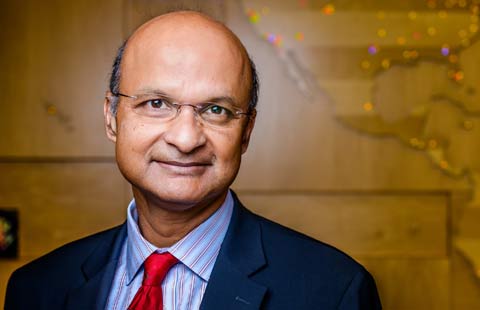Starting with the urban-rural divide
What's worse, the surging urbanization rate has failed to translate into any significant rise in livelihood or bring social benefits to those migrants moving into the cities, believed to be around 160 million people "on the move".
In contrast to international norms, Huang figures that China's urbanization process has yet to satisfy the financial, particularly on savings, aspirations of rural migrant workers and has delivered few positive effects on rural household income growth.
The official urbanization rationale is premised on the idea that cities offer significant advantages in terms of social services that are particularly valuable to the poor.
"Because the population density of cities is high, it is cheaper - on a per capita basis - for the government to provide unemployment benefits, healthcare and
Yet the current hukou system, which dates back to the 1950s, has effectively denied migrant rural workers equal access to social benefits such as medicine, education and accommodation, thereby forcing many to save as much as they can to cover those extra costs of living in a city. The government has acknowledged the urgency to revamp the system. Huang Ming, the vice-minister of public security, said in March that a unified national residence permit system is due to be set up to replace the controversial hukou system. Many experts said they believe that abolishing the hukou system is essential for true urbanization to happen in China. Chi Fulin, president of the China Institute for Reform and Development, said it is essential to unlink social benefits from the household registration system. Chi said the economic benefits of genuinely converting rural migrants into city residents could be worth hundreds of trillions of yuan by 2020. "If they come to cities just for work, their average expenditure rose by 171 percent. But if they become permanent residents, they will spend 214 percent more than before, " Chi said. He predicted that at least 5 trillion yuan ($814 billion) worth of consumption would be created, provided that 130 million to 150 million rural residents become real citizens by 2020.























